|
Children on the Edge have set up 10 new classrooms on Bhasan Char Island in Bangladesh, offering education to 500 Rohingya refugees. REFUGEE EDUCATION IN BANGLADESHFor the last 10 years, Children on the Edge have had a reputation for delivering quality education for Rohingya refugee children from Myanmar in the border camps in Bangladesh. We support 75 learning centres in Kutupalong camp, providing education for over 7,000 children. Earlier this year, we were invited by the Bangladesh government to set up model learning centres for Rohingya refugee children arriving on Bhasan Char Island. 10 new model classrooms are now up and running, supporting 500 children with vital education and support. Over the past year, to ease the huge congestion in the crowded refugee camps in Cox's Bazar on the border with Myanmar, the Bangladeshi government has been relocating tens of thousands of Rohingya refugees to Bhasan Char island in the Bay of Bengal. In the world's largest refugee camp, over a million Rohingya refugees live and the Bangladeshi government has touted Bhasan Char as a solution to the severe overcrowding there. Their aim is to relocate a total of 105,000 Rohingya refugees by the end of 2022. This push of refugees to Bhasan Char by the Bangladeshi government is controversial. There have been reports of forced relocations and there is concern over the safety of the island and the undeniable restrictions on freedom of movement that those living there will face. To address these concerns, we have undertaken months of research and consultation, talking directly with rights groups, and residents on the island, to gain insight into the issues on the ground, and have concluded that the Rohingya children here are the most vulnerable in Bangladesh. No matter the reason they have arrived on Bhasan Char, they need quality education to have a chance to escape the fate of being impoverished, second-class citizens. There is a serious lack of learning facilities on the island, and education has been the residents top request so far. NEW CLASSROOMSTo respond to this need, we have set up 10 model classrooms on Bhasan Char island, with 10 trained teachers, providing high quality primary education for 500 children, in a language they can understand. One of the most popular components of our education programme in Bangladesh, is the use of digital lessons, which the children love. These lessons build confidence, increase enjoyment and help the children to learn more effectively. Digital lessons are already being delivered at the new schools on Bhasan Char island and the teachers will receive extra training in the coming months so they can fully integrate the digital curriculum. Like all our education provision in Bangladesh, the schools here will be centred around providing well-trained teachers, and safe, colourful learning environments. Students will enjoy a varied curriculum, with multiple avenues for self-expression including art, singing, dance and drama. They’ll take part in sports, and enjoy taking care of gardens surrounding their classrooms and benefit from health education and interventions. Children will be given opportunities to make their voices heard through each school’s Child Council and will learn about their rights and how to realise them. They will be able to contribute ideas and participate in our Moja Kids programme, which is especially vital as one of the main concerns expressed by refugees here is the sense of isolation from the outside world, and their remaining friends and relatives in Kutupalong. A recent Moja Kids video (scroll to 18 minutes to see Bhasan Char) has already featured the new Bhasan Char classrooms, and been screened to over 8,500 children in mainland Bangladesh. Through these model schools, we aim to set a high educational standard and deliver our award winning digital curriculum. We hope to encourage other agencies to replicate the model, so that more children can gain a meaningful education as they arrive. CONDITIONS ON BHASAN CHARBhasan Char island was formed in the last 20 years by silt deposit in the delta, and is repeatedly changing in shape. It is around 3-5 hours by boat from mainland Bangladesh, and the crossing is difficult in poor weather. Concerns have been expressed over access to adequate food, healthcare and education. Whilst the current lack of learning facilities is a huge problem, facilities on the island are far superior to the border refugee camps, with solid brick buildings, water, electricity, drainage and good wifi. When our Asia Regional Manager visited the island in May, he interviewed 54 residents who described how relieved they were to be away from the camps, appreciating better homes, space and facilities, fans and electricity. Extensive building and landscaping work is being done to develop flood defences, cyclone shelters, small scale agriculture, roads, storage and a solar power grid. There are currently no reports of crime, as the navy is present, meaning the children have much more freedom to play outside. Back in the larger camps, organised crime has reached such a serious level that parents don't let their children out of sight. Whilst the island is not a permanent solution to house the numbers of Rohingya refugees in Bangladesh, temporarily Bhasan Char seems to be providing a safe place for families to stay. Alongside the provision of education, we will continue to monitor the situation on the island with regards to human rights, and ensure that at all times the welfare of the Rohingya people is paramount. Thank you to the British & Foreign School Society (BFSS), Jewish World Watch, Vitol Foundation and other donors who prefer to remain anonymous who also support our education programme in Bhasan Char.
Support us
0 Comments
Your comment will be posted after it is approved.
Leave a Reply. |
RECEIVE OUR EMAILSBlog Categories
All
Archives
July 2024
|
|
JOIN US ON SOCIAL MEDIA
|
Annual Report | Contact Us | Jobs | Media Centre | Resources | Shop
Accessibility & Policies: Accessibility | Equity, Diversity & Inclusion Policy | Complaints| Privacy Policy | Safeguarding
Accessibility & Policies: Accessibility | Equity, Diversity & Inclusion Policy | Complaints| Privacy Policy | Safeguarding
Children on the Edge, 5 The Victoria, 25 St Pancras, Chichester, West Sussex, PO19 7LT, UK | 01243 538530 | [email protected]


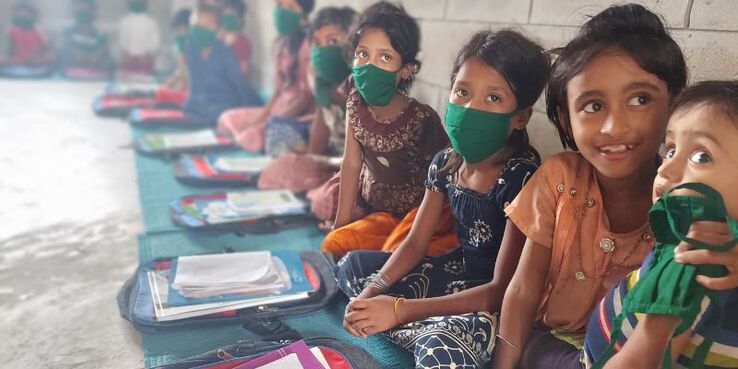
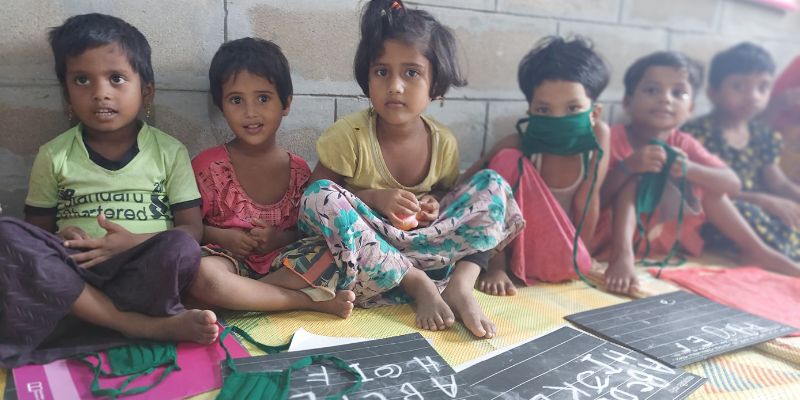
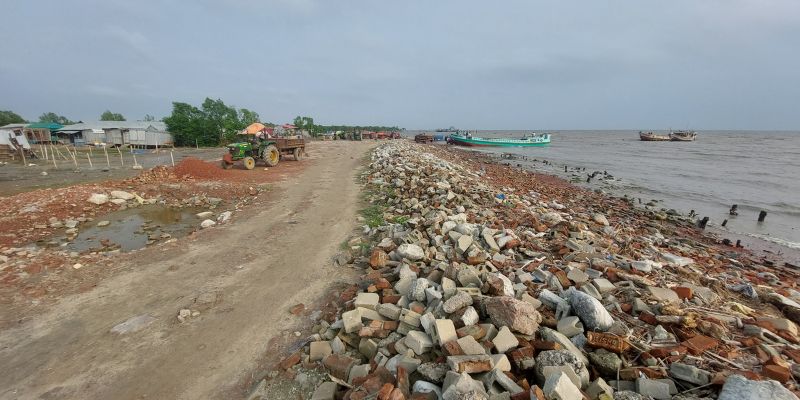
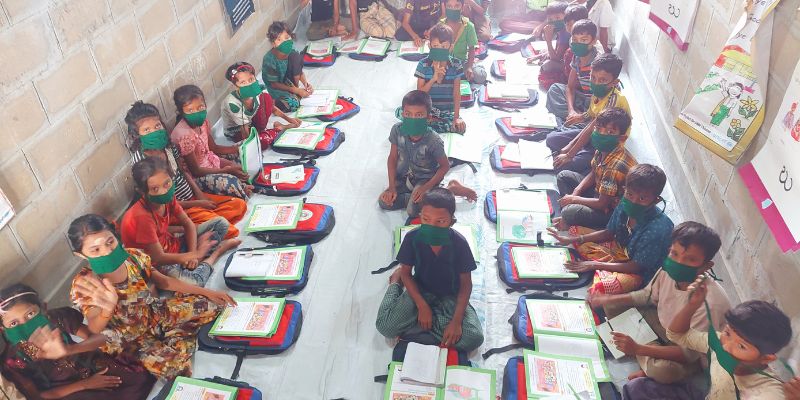
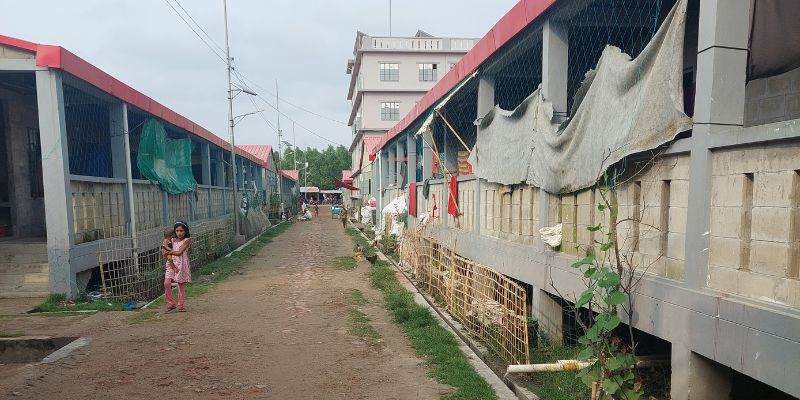

 Give monthly
Give monthly Fundraise for us
Fundraise for us RSS Feed
RSS Feed
